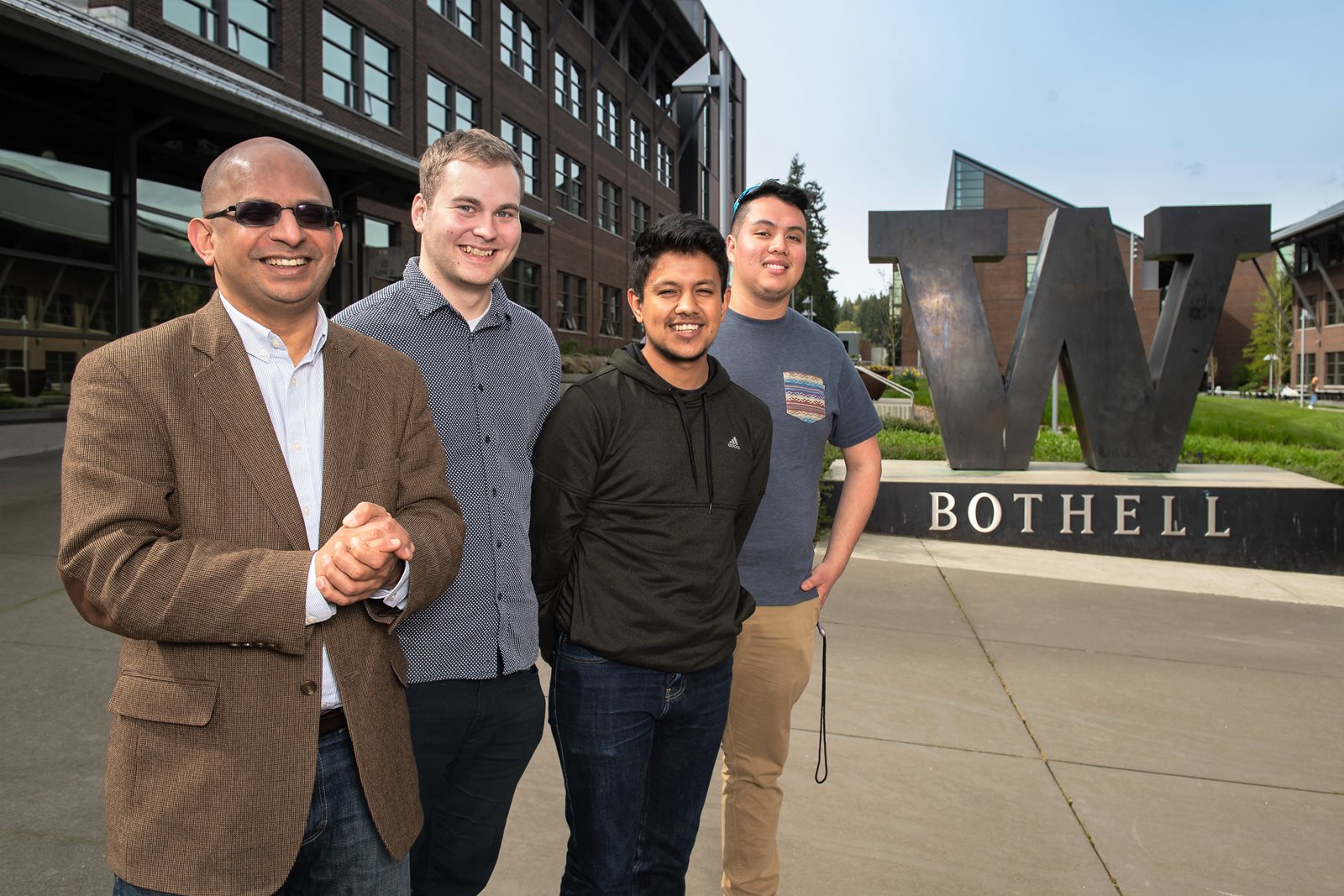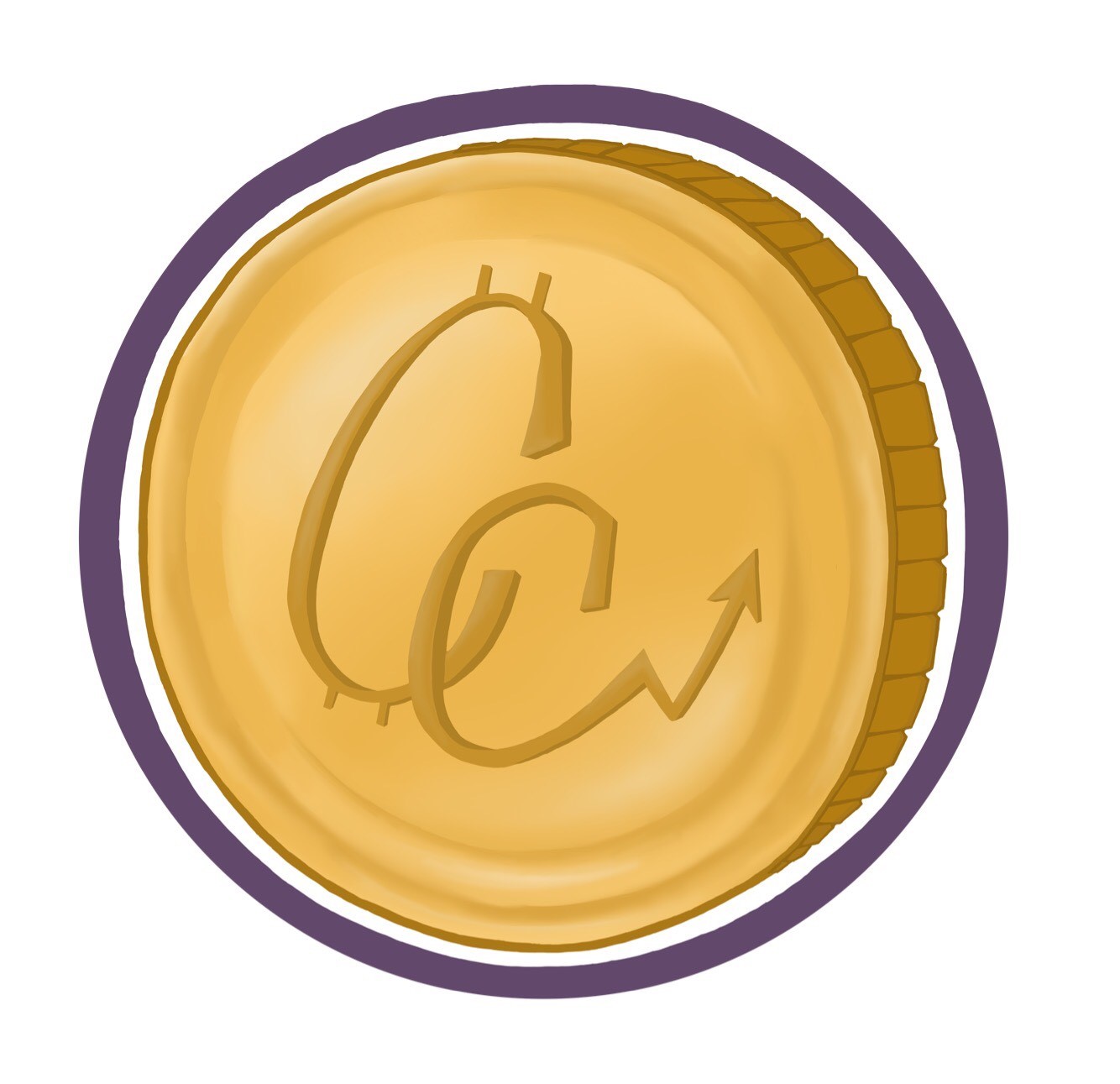
By Douglas Esser
Members of the new Cryptocurrency Club at the University of Washington Bothell dream of creating their own encrypted digital currency. They have the software engineering talent, said Zachary Nelson, club president, although they would have a lot of work before they would start mining that vein.
Nelson, a media and communications major planning to graduate in 2020, started the club early this year after finding other classmates interested in decentralized currencies. About the same time, Mark Conrad, a senior in management information systems, and Anthony Waddell, a junior in computer science and software engineering, founded the related Blockchain Enthusiast Club. Because of its interest in the underlying technology, it has merged with the Cryptocurrency Club.
Nelson has been interested in cryptocurrency since Bitcoin traded for around $11. The highly volatile currency recently sold for around $8,000.
“I thought the technology was really cool — that fact that you can produce your own currency and that you can buy currency and just have it on your phone. You don’t have to use any kind of centralized banking system,” Nelson said.
Nelson and a friend bought some Bitcoins in those early days but sold them long before last December when the price peaked near $20,000. If they had sold their investment at the high, they would have had more than $1 million, Nelson laughed. He also has dealt in Bitcoin Cash, Litecoin and Ethereum. He carries a Shift debit card, which is a cryptocurrency-based Visa card.
The Cryptocurrency Club isn’t really about investing, though. It’s about innovating and exploring the possibilities that arise from blockchain. The secure, verifiable ledger system is distributed across the internet and has record-keeping applications far beyond cryptocurrency.
“The cryptocurrencies may be regulated out, but the underlying technology is going to be very pertinent in the future,” Conrad said. “It’s going to be the transformative technology of the next 20 years.”
The students are encouraged by School of Business Dean Sandeep Krishnamurthy, the club adviser.
“Whether they invest in Bitcoin, Ethereum or the plethora of new cryptocurrency offerings — or start their own through an initial coin offering — knowledge in the field will help students position themselves for success,” Krishnamurthy said. “In this rapidly changing field, curriculum is not yet shaped, and a student club might be just the beginning of an interdisciplinary effort to engage the community and support all stakeholders.”
Through Krishnamurthy, Nelson and three other club members recently met with Lakshmi Narayanan, an entrepreneur and venture capitalist. He suggested possible internship opportunities with a cryptocurrency-related startup. The club plans to share their ideas with other students, bring speakers to campus, make contacts and build the relationships that can lead to jobs. Future ideas also include a cryptocurrency festival and minting that new coin.
“I don’t want it to ever be boring,” Nelson said.
At their initial event April 12 in the Activities and Recreation Center, club members heard from Paul Burke, the CEO of RntX, a Los Angeles startup that produced the roommate-finding app RentHoop. Using blockchain, RntX is now building a service for landlords and renters to verify identities and rental histories.
“Someone is going to do this because it makes so much sense. We think we’re the people to do this,” said Burke, who grew up in Redmond and attended UW Bothell for a time in 2011.
The club has also planned an upcoming event with a Vancouver, British Columbia, startup called Stably, which was founded by UW Bothell grad Kory Hoang (business ’15). It connects wealth from the real world to the blockchain economy. The club also is in contact with a Seattle startup called Strix Leviathan, a cryptocurrency investment platform.
“We’re not just meeting and talking, we’re working on things that have value to society,” Conrad said.
Nelson is grateful to find their ideas accepted and promoted at UW Bothell.

“I think the school supports entrepreneurship, supports new ideas,” Nelson said. “Because I go to this school, I’m able to have these awesome events and meet all these people.”



